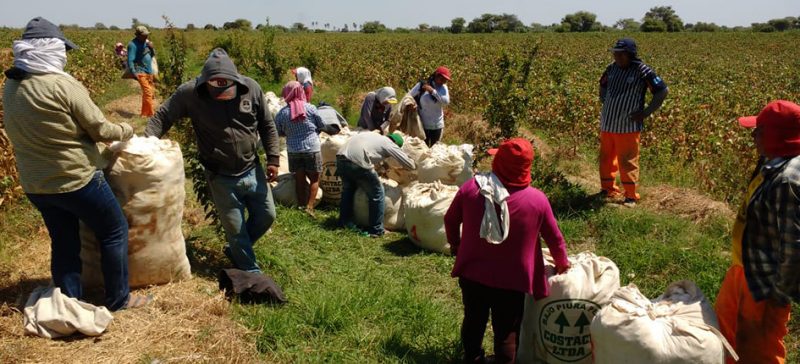Member News
Haelixa enables traceability of Peruvian cotton

The DNA markers from Haelixa will enable the traceability of high-quality Pima cotton from Peru. In the context of an initiative set up by the United Nations Economic Commission for Europe (UNECE) to improve transparency and traceability, Haelixa has launched a pilot project with the cooperative of cotton farmers in Peru Costach (Cooperative De Servicios Multiples Tallan Chusis Ltda – Costach Ltda) and the Peruvian textile company Creditex.
Pima cotton from Piura is more expensive than other types of cotton, thanks to its extra-long staple fibers. Haelixa’s DNA marker connects the actual lint cotton to the entry on a blockchain system provided by UNECE. As the main cooperative of cotton farmers in Peru, Costach consists of 5,200 family farmers in the Piura region. “For Costach, it is essential to participate in traceability initiatives,” said General Manager Ricardo Yarleque in a Haelixa press release. They “give visibility to the important role of small family farmers in the production of Peruvian cotton”.
“Physical traceability becomes a key element in creating awareness for the producers of the raw material and manufacturers that are at the beginning of the value chain,” explains Gediminas Mikuti, CTO and Co-founder at Haelixa, adding: “consumers want to know who made their garments and under which circumstances they have been produced”. This gives partners in the supply chain a face and voice.
Since 2017, the +Cotton project of the Food and Agriculture Organization (FAO) and the Brazilian Cooperation Agency (ABC) has been supporting the farmers in Piura with training on sustainable practices and has been providing technical assistance for improved markets access.